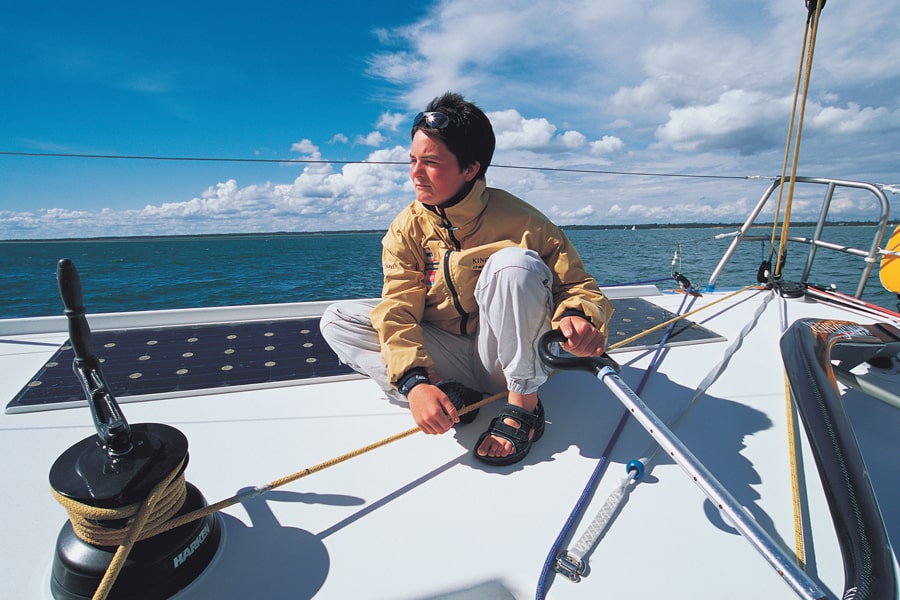Despite the benefits of plastics to the construction, healthcare, car and packaging industries, there is an underlying current that sweeping changes are needed to stop the sea from drowning in plastic waste
INEOS is officially backing an international initiative to stop the flow of plastic waste into the world’s oceans and rivers.
Chairman and Founder Jim Ratcliffe has signed the global plastic industry’s Operation Clean Sweep® – and has pledged to do all he can.
The decision to sign was made as the UN Environment Programme claimed about eight million tonnes of plastic end up in the sea every year.
“Unless global action is taken now, our oceans will be filled with the leftovers of human consumption,” a spokesman said in a recent report.
“These are really scary statistics and numbers like this stick, especially in the minds of politicians, Non Governmental Organisations (NGOs), environmental pressure groups and society at large,” said Dr Jason Leadbitter, Sustainability & Corporate Social Responsibility Manager at INOVYN.
THE UN Environment Programme intends to invest $6 million over the next five years as part of its ambitious campaign to turn a neglected problem into one that can no longer be ignored.
Jason may work for a company that is one of the world’s biggest producers of plastic, be it in pellet or powder form, but he says INEOS has been aware of – and trying to tackle - the problem for years.
“We already have countless procedures in place to ensure our sites and processes are carefully managed to prevent plastic powder and pellet lost,” he said. “It is common practice to have spill kits in place and to ensure that good housekeeping is maintained at all times to prevent leakage to the environment.”
One of the key pledges of Operation Clean Sweep®, though, will be to provide additional training and accountability to INEOS’ staff, as well as regular audits.
“We need to be seen to be taking positive action because we will be judged on this in the years to come,” he said. “It is also in our interests, as such losses, however small, have an economic value to the business.”
Jason recalled how 10 years ago he was sitting on a beach in Sardinia when his daughter fished plastic pellets from the sand and asked him what they were.
“I have to say I was rather embarrassed to tell her that her daddy worked in an industry that made such pellets,” he said.
Jason said the industry could face a bleak future if it failed to tackle this growing and serious problem.
“If we fail, then the bigger threat is the design out of plastics which some NGOs are already calling for with regard to certain types of single-use plastics,” he said. “Thankfully Operation Clean Sweep® is beginning to gain momentum and also credibility with some of the NGOs as more and more companies sign up to its pledge.”
In the UK alone, Fidra, a Scottish-based charity, estimates that up to 53 billion of these plastic pellets are lost each year.
“If you can imagine that a 24-tonne tanker contains about 1.5 billion pellets, you can understand the scale of the problem,” said Jason.
Thankfully, Fidra wants to work with industry, including trade associations, not against it.
“It understands the importance that plastics play in society and is trying to address the problem collectively,” said Jason. “It sees Operation Clean Sweep® as a means of industry taking on its responsibility.”
But plastic pellets are only part of the problem.
Microbeads – the tiny bits of plastic found in exfoliating body washes and facial scrubs – are designed to be flushed down drains. But the particles float in water and can be carried over significant distances. There are numerous campaigns, calling for them to be banned, but in the meantime, fish feed on them, mistaking them for food.
“Personally I find microbeads completely indefensible,” said Jason. “The leakage to nature is unavoidable and they clearly do tarnish the reputation of the plastics industry.”
Over the next five years the UN Environment Programme plans to mobilise the biggest-ever clean-up of beaches around the world to highlight the problem.
“This is an issue not just for industry, but for the whole of society,” said Jason.

ELLEN MACARTHUR WARNS OF STORM ON HORIZON
DAME Ellen MacArthur, who made history when she became the fastest solo sailor to circumnavigate the globe in 2005, has become a driving force for change.
She believes the structure of today’s global economy is fundamentally flawed – and believes people can learn from nature where nothing is wasted.
“How can our economy really run in the long term when it involves taking a finite material out of the ground, making something out of it and then ultimately throwing it away?” she said. “We need to build an economy where we use things, not use them up.”
In a new report, published in January by the Ellen MacArthur Foundation and the World Economic Forum, global plastics producers were called on to design better packaging, increase recycling rates and introduce new models for making better use of packaging.
Just 14% of plastic packaging is currently recycled. She believes it can easily be increased to 70% by rethinking the design.



















